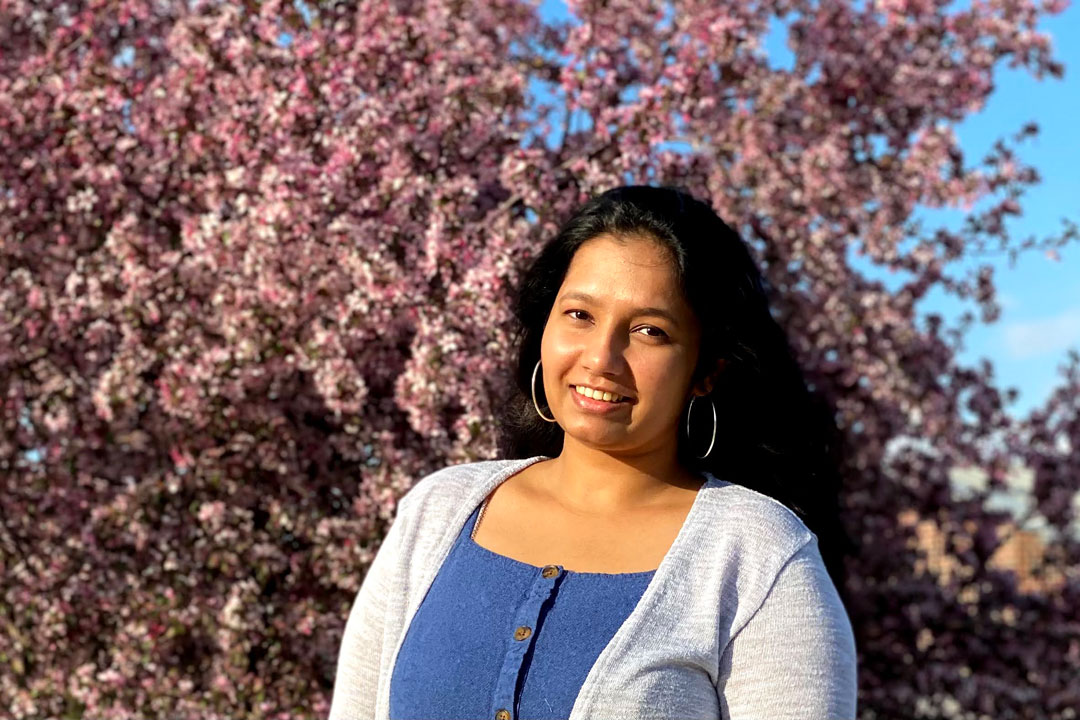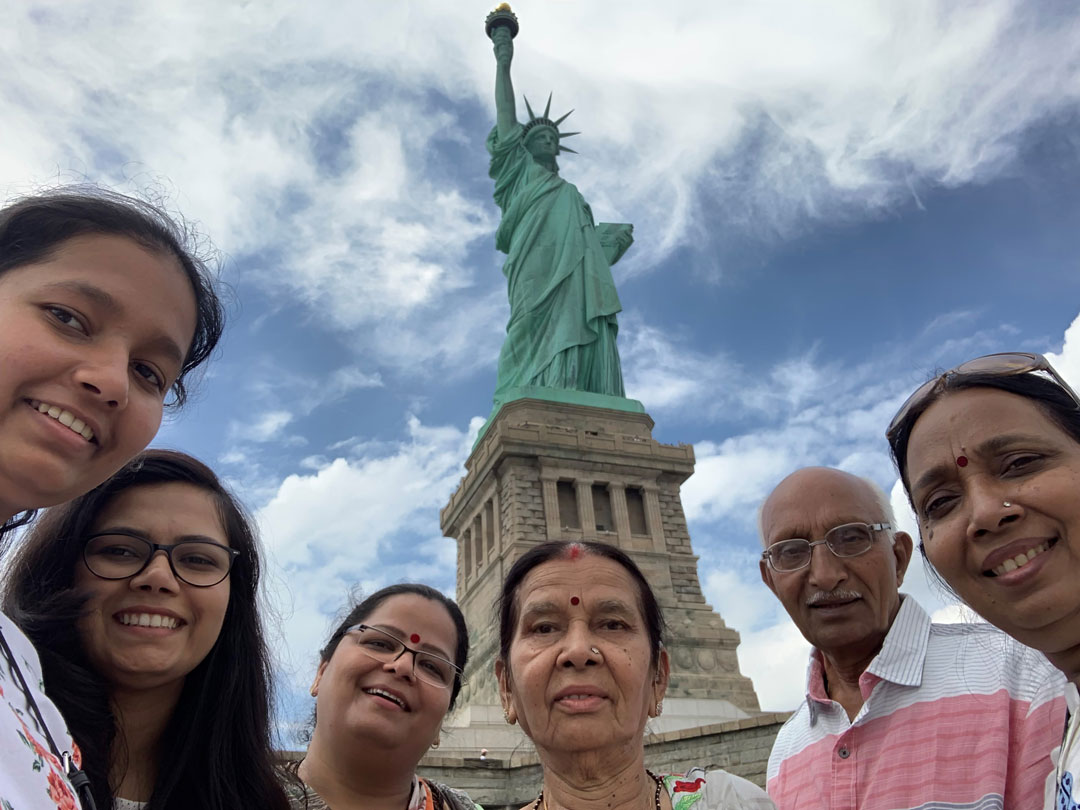Computing graduate inspired to help others after losing grandfather to COVID
Student focuses human-computer interaction capstone on isolation challenges for COVID patients
Monika Verma, a 2021 graduate from RIT’s human-computer interaction master’s program, dedicated her capstone project to COVID-19 patients, including her grandfather.
Monika Verma has dedicated her capstone project to COVID patients across the world, after the pandemic hit too close to home for her last year.
The graduating human-computer interaction master’s student is drawing from her family’s experience with COVID in hopes of finding ways to help others in similar situations. Her capstone project focuses on studying the needs and challenges that COVID patients face with isolation. This new understanding will better inform technology creators who can build solutions that address the true needs of COVID patients.
Last June, Verma learned that her whole family back home in Delhi, India, had contracted COVID-19. She said that at the time, no COVID tests were available for her family. From across the world, she tried desperately to get more information and organize help from a healthcare agency for her quarantining family.
Within four days, she had lost her grandfather Om Prakash Verma to COVID.
“It was a low point in my life, because he was my role model,” said Verma. “In Indian society it can be difficult for girls to pursue higher education, but my grandfather always thought differently. He wanted all of his kids and grandkids to be educated and pursue their dreams.”
Monika Verma, left, and her family, including her grandfather, during a trip to New York City.
As she approached her final year of school, she was struggling with shock and grief. She wasn’t able to finish her original capstone project because it would require face-to-face user studies with a wearable device prototype.
While talking with her professor Mingming Fan, she thought, “the struggle that my family went through must be something that other families are going through.” Verma and Fan began to change the direction of her capstone to focus on COVID patients.
“Although there are many papers and projects about COVID, little work has focused on understanding the emotional and communication challenges and needs of people who have COVID,” said Fan, assistant professor in RIT’s School of Information. “Monika’s project will contribute a qualitative understanding of this problem and help researchers and designers better design tools and methods to address the problem, not just for COVID, but also for future potential pandemics—although we all hope there will be no future pandemics, it’s hard to say COVID would be the last pandemic humans have.”
Fan stressed how important it is for researchers to take a human-centered approach to designing interactive tools and systems. That’s why researchers study the actual needs of their audience, instead of making assumptions about them.
Verma went to work collecting data and interviewing COVID patients from the U.S., India, Bulgaria and Brazil. She wanted to learn about the challenges that people were facing.
She discovered examples of challenges related to personal life, work and living conditions when in isolation. Moreover, she found how differently society treated COVID patients. For example, people had difficulty with garbage disposal and garbage collecting in the home. Another person had difficulty navigating her building’s new elevator policy and had to walk 12 flights of stairs because she wasn’t able to use the elevator alone.
One finding that resonated with Verma was how people with COVID were communicating with family members. Family and friends felt obligated to check in with someone who is isolating, but the patient did not have the energy to monitor incoming messages. This would make family and friends worry even more.
In many examples, patients sought online consultations with medical professionals, but doctors didn’t have the most up-to-date information on the correct medications to prescribe. She also found that many patients did not go directly to the National Institutes of Health website for information, because it didn’t have complete information on COVID symptoms during the initial months of the pandemic.
“Using all this information, I want to inspire creators to build more integrated systems of information that can be more helpful for patients,” said Verma. “Technology could be useful in helping patients overcome the negative post-traumatic symptoms of their COVID journeys.”
Verma hopes that her findings could also be useful to other human-computer interaction researchers, especially as India currently faces a second wave of COVID-19. The country’s total number of cases recently passed 18 million.
After graduation, she plans to work in user experience as a researcher or designer.
“When my grandfather passed away, I thought about something he always said,” said Verma. “He said, never stop yourself from doing good things—so I’m going to keep doing that.”















